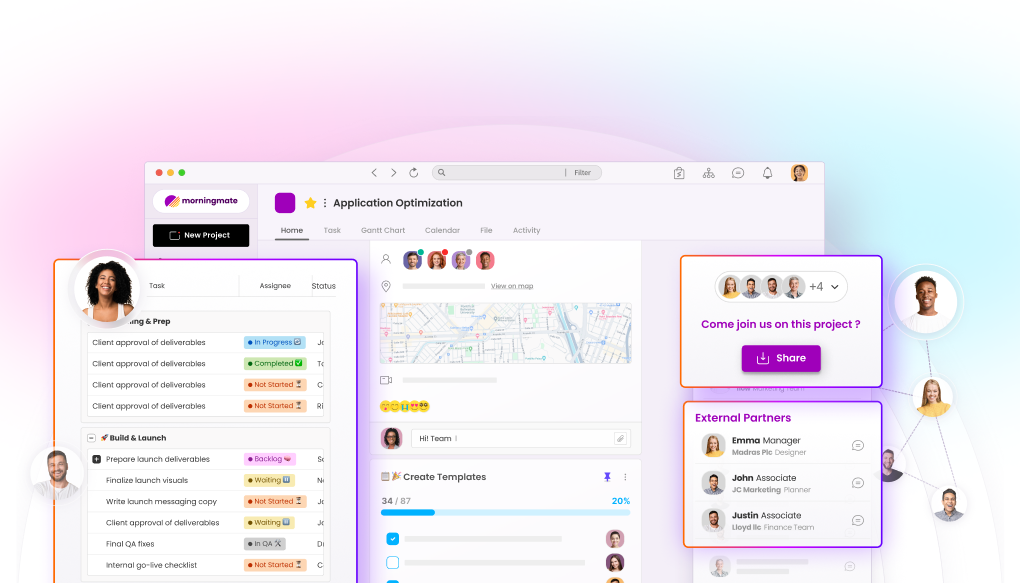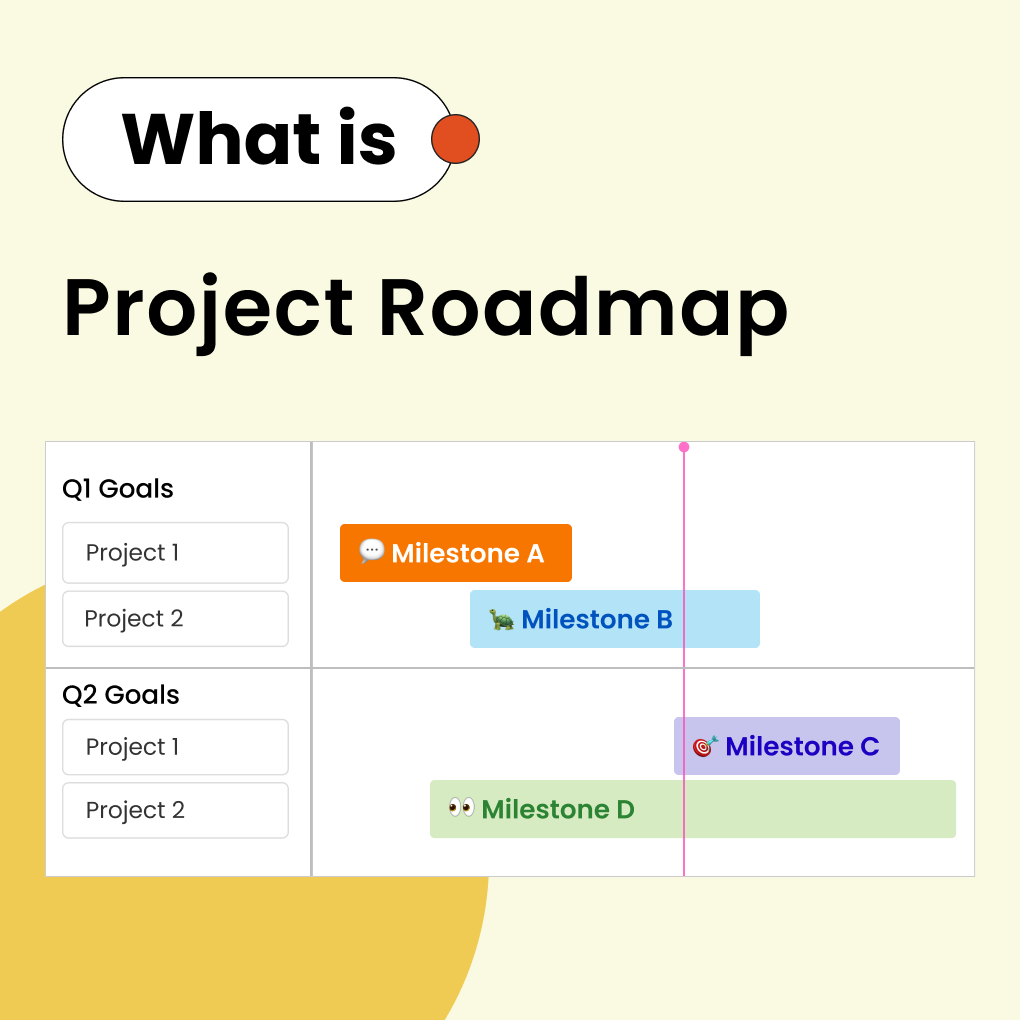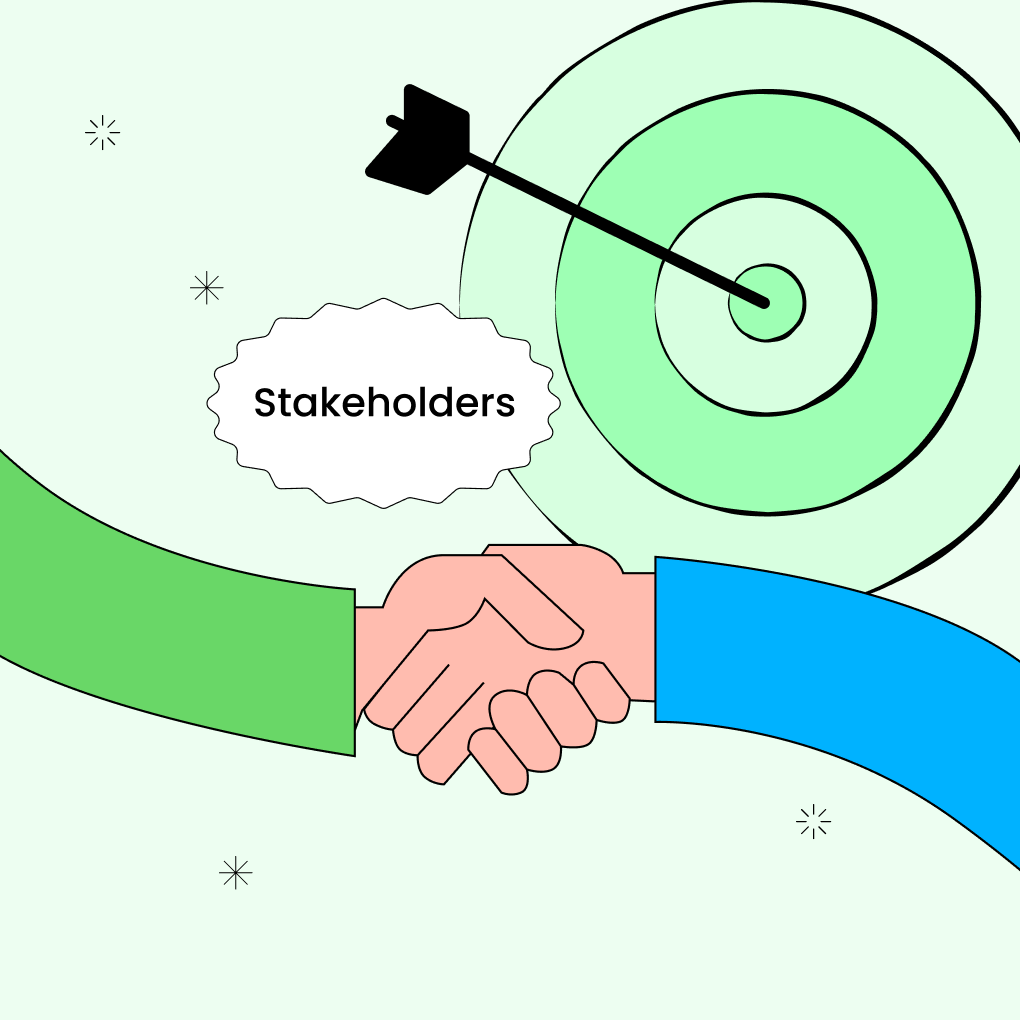Are you looking to excel as a project manager? This guide offers proven strategies, essential qualities of effective leaders, and tips for managing successful teams at any level.
What Makes a Great Project Manager?
Project managers are the backbone of successful projects. But what sets exceptional project managers apart from the average ones? Outstanding project managers do more than just track tasks and deadlines; they foster teamwork, navigate challenges, and deliver results even in tough situations.
Core Responsibilities of a Project Manager
At its core, project management involves planning, executing, and closing projects on time and within budget.
Successful project managers define project goals and scope, create realistic and measurable timelines, allocate resources effectively, manage stakeholder relationships, identify and resolve issues before they escalate, facilitate communication among team members and departments, and lead project meetings that maintain focus and momentum.
While these tasks are fundamental, the approach a project manager takes can significantly impact project success.
The Importance of Soft Skills
While technical knowledge and familiarity with project management methodologies are crucial, research shows that soft skills are equally, if not more, important for project success. According to PMI research, over 75% of employers prioritize leadership and communication skills over technical expertise when hiring project managers.
Great project managers blend technical know-how with strong interpersonal skills. They understand that projects are driven by people, not just processes. As one experienced project manager noted on Reddit, “The best PMs I worked with weren’t the most technically skilled; they excelled at connecting people and creating an environment where everyone felt heard and motivated.”
Key Traits of a Successful Project Manager
The difference between great project managers and average ones often lies in their personality traits and learned skills that enhance their leadership abilities.
Strong Communication and Listening Skills
Effective project management hinges on communication. Great project managers simplify complex ideas into clear, understandable messages for diverse audiences. They excel in both written and verbal communication, actively listen to team members, ask questions instead of making assumptions, and tailor their communication style to meet stakeholders’ needs.
They welcome constructive feedback that encourages growth rather than discouragement. As the Forbes Tech Council states, effective communication with team members, stakeholders, and clients is the most vital skill a project manager can possess.
Empathetic and Accountable Leadership
Leadership in project management is about influence, not authority. Exceptional project managers lead by example, empathize with their team members, take responsibility for project outcomes, and create a safe environment where team members feel comfortable voicing concerns.
They delegate tasks based on team members’ strengths and recognize individual contributions, fostering team unity. A senior developer in an industry forum remarked, “The most successful project managers I’ve worked with take full responsibility for project results and credit their teams. They protect their teams from unnecessary pressure and maintain high standards.”
Organization and Attention to Detail
With countless moving parts in any project, organization is essential. Successful project managers create and maintain detailed project plans with specific tasks, implement efficient documentation systems for easy information retrieval, monitor progress meticulously, and identify minor issues before they escalate.
They ensure meetings are well-organized, follow up on action items, and develop processes that enhance efficiency without creating unnecessary bureaucracy.
Adaptability and Problem-Solving Skills
No project goes exactly as planned. Great project managers remain flexible in the face of the unexpected. They adapt to changing requirements and limitations, approaching problems with an open mind rather than a rigid mindset.
Their motto is to stay calm under pressure, even when timelines or budgets are at risk. They make necessary adjustments when initial plans fail, learn from mistakes, and apply those lessons to future projects. Research by TeamGantt indicates that adaptability is one of the top three qualities sought in senior executives looking to promote project managers to leadership roles.
Confidence in Decision-Making
Project managers make numerous decisions daily that impact project outcomes. The best ones make informed choices quickly, combining reasoning, experience, and intuition with data-driven analysis.
They involve team members in the decision-making process, objectively assess trade-offs, and demonstrate the courage to make tough but necessary decisions. This proactive approach keeps projects moving forward, even in uncertain situations.
Expertise in Stakeholder Management
One of the most nuanced skills in project management is managing relationships with all stakeholders involved in a project. Successful project managers identify stakeholders early, understand their unique interests and concerns, develop tailored communication plans, and navigate conflicting priorities across departments or clients.
They build trust through transparency and follow-through, while skillfully managing organizational politics without getting entangled in them. As one CIO article explains, “Navigating complex stakeholder landscapes is often what makes or breaks a challenging project.”
10 Practical Tips for Becoming a Better Project Manager
To enhance your effectiveness as a project manager, consider implementing these actionable strategies alongside your inherent traits.
1. Set Clear Goals and Expectations
Ambiguity is the enemy of successful project management. To combat this, translate project objectives into measurable goals, create a comprehensive project charter approved by all stakeholders, and define what “done” means for each deliverable.
Document team roles and responsibilities clearly, and regularly realign expectations throughout the project. By clarifying collaboration goals upfront, you can minimize misunderstandings and reduce the costs associated with necessary course corrections.
2. Utilize Project Management Software
The right tools can significantly enhance your effectiveness. Choose project management software that meets your team’s specific needs and ensures consistent task management across projects.
Incorporate visualization tools like Gantt charts for scheduling, automate routine updates and reminders, and provide thorough training for all team members on the selected tools. While tools alone won’t guarantee success, they create a solid foundation for collaboration and tracking.
3. Schedule Regular Team Check-Ins
Frequent communication helps prevent problems and fosters team cohesion. Hold brief daily or weekly stand-ups to discuss obstacles, conduct personal check-ins with team members, and implement regular project reviews at key points in the project lifecycle.
Balance formal meetings with informal touchpoints to maintain engagement. According to Adobe’s project management experts, regular check-ins promote accountability and allow team members to voice concerns before minor issues escalate.
4. Plan for Risks Early
Effective risk management sets great project managers apart. Conduct thorough risk assessment workshops at the project’s outset, develop contingency plans for high-impact issues, and assign risk owners to monitor specific threat areas.
Stay vigilant for warning signs that indicate potential problems and maintain a living risk register that you update throughout the project.
5. Keep Documentation Organized
Well-organized documentation is crucial for project success. It creates a shared resource pool across projects and allows for the development of reusable templates for frequently used documents.
Maintain a record of significant decisions and their rationales, and ensure project plans remain current and accurate. Utilize version control for documents that frequently change to avoid information silos and provide context for new team members joining mid-project.
6. Celebrate Small Wins
Recognizing achievements, no matter how small, motivates teams and alleviates pressure. Acknowledge completed milestones, publicly recognize individual contributions, and arrange brief celebrations for significant accomplishments. Regularly update stakeholders on progress.
Northeastern University emphasizes that teams celebrating incremental progress remain more motivated during lengthy or challenging projects.
7. Continue Learning and Upskilling
Great project managers are committed to continuous improvement. Pursue relevant certifications like PMP, PRINCE2, and Agile, and engage in professional forums to learn best practices.
Stay informed by reading industry publications and thought leadership, and seek mentorship to enhance your skills. Experiment with new methodologies on a small scale before applying them broadly.
The project management landscape is constantly evolving. Staying current with emerging practices gives you a competitive edge.
8. Stay Calm Under Pressure
Your demeanor sets the tone for the entire team. Effective project managers employ stress management techniques in high-pressure situations, model composed behavior during crises, and focus on problem-solving rather than assigning blame.
Break down overwhelming challenges into manageable parts and maintain objectivity about what constitutes an emergency. Your composure in difficult times instills confidence in your leadership and encourages team collaboration.
9. Communicate Transparently with Stakeholders
Honest, proactive communication fosters trust. Share both good news and challenges, and provide regular status updates based on agreed-upon cadences.
A great manager openly discusses potential issues that may impact deadlines or deliverables and explains the reasoning behind decisions and changes. LinkedIn project management experts note that transparent communication allows stakeholders to adjust expectations and prevents unpleasant surprises.
10. Lead by Example
Your actions set the standard for the team. Demonstrate the work ethic you expect from others, consistently honor commitments, and show respect for every team member, regardless of their role. Acknowledge mistakes and illustrate how to learn from them while balancing a focus on results with attention to team well-being.
When you embody the values and practices you advocate, your team is likely to follow suit.
Bonus Advice for Beginner Project Managers
If you’re new to project management, these additional tips can help you avoid common pitfalls and accelerate your development.
Avoid Common Mistakes
New project managers often struggle with overpromising on deadlines and deliverables or trying to please stakeholders. Failing to document important decisions and agreements can lead to micromanagement instead of empowering team members.
Be mindful of scope creep as requirements evolve, and ensure you communicate regularly with stakeholders and team members. Recognizing these pitfalls allows you to actively prevent them. As one senior manager advises, “It’s better to under-promise and overdeliver than the reverse, especially when establishing your reputation.”
Build Relationships Across Departments
Successful projects often require collaboration across various teams. Take the time to understand different departments’ priorities and challenges, build relationships before you need resources, and familiarize yourself with the technical language of different specialties.
Show genuine interest in the perspectives of other teams and align your projects with organizational goals. These cross-functional relationships can be invaluable when you need assistance or must balance competing priorities.
Don’t Be Afraid to Ask for Help
Even experienced project managers don’t have all the answers. Seek mentors for advice on challenging situations, consult subject matter experts for technical issues, and acknowledge knowledge gaps instead of pretending to know everything.
The most successful project managers I’ve mentored were those who readily asked questions and sought guidance. As a project management director once said, “That’s a sign of wisdom, not weakness.”
Why Morningmate Supports Great Project Managers
Effective project management requires robust tools that adapt to your team’s workflow. Morningmate offers comprehensive support for project managers at all levels.
All-in-One Collaboration and Task Management

Morningmate provides the essential features project managers need, including user-friendly process tracking, customizable workflows for various project methodologies, real-time collaboration tools for distributed teams, time monitoring, resource distribution, and comprehensive reporting for stakeholder updates.
This integrated approach streamlines your project workflows by eliminating the need for multiple scattered tools, simplifying your project management.
Simple Onboarding for Any Team
Introducing new tools to your team can be challenging. However, Morningmate simplifies this process with its user-friendly interface that requires minimal training, wizard-style onboarding guides for new users, and templated project setups that are easy to implement. Additionally, it offers responsive support for implementation questions and compatibility with existing tools through integrations.
Your team won’t need to navigate complex software, as the platform is designed to be intuitive.
Free External Stakeholder Invitations
Unlike other project management platforms that charge fees for external users, Morningmate provides unlimited stakeholder access with secure, limited-access views for clients and external partners. It allows for custom permissions for various stakeholder types, professional status updates, and easier feedback collection from outside sources.
You can invite collaborators from outside your organization at no cost, ensuring seamless communication with all project participants.
By adopting these strategies, cultivating these characteristics, and utilizing the tools outlined in this guide, you can become an exceptional project manager who consistently delivers outstanding results.
Remember, effective project management is about empowering people to perform at their best despite challenges. With practice and perseverance, you can develop the skills and qualities your team and organization need.




